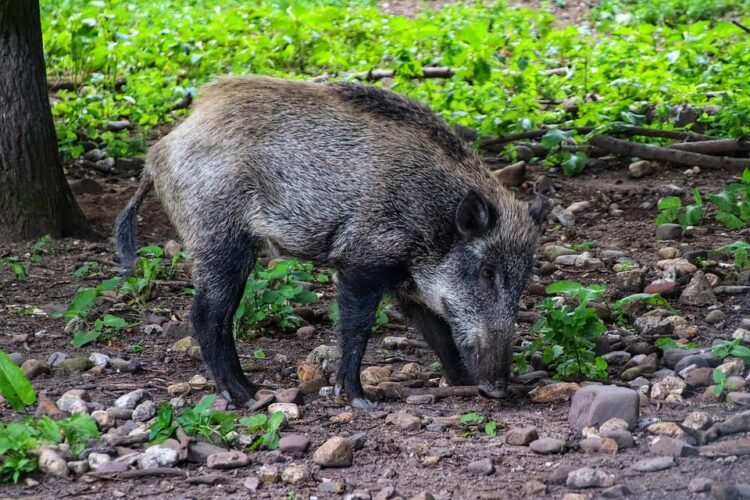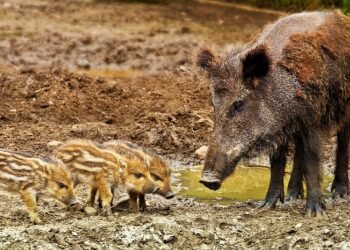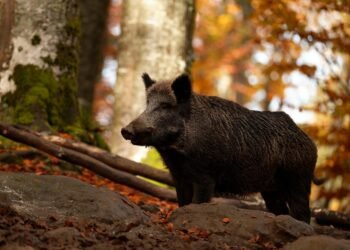Surviving the Charge: Expert Tips for Handling a Wild Boar Encounter
Encountering a wild boar can be a terrifying experience, as these powerful animals are known for their aggressive behavior and sharp tusks. Whether you are hiking in the woods or camping in the wilderness, it is important to be prepared for a potential encounter with a wild boar. In this article, we will provide expert tips on how to handle a wild boar encounter and ensure your safety in the great outdoors.
Understanding Wild Boars
Wild boars, also known as feral pigs or hogs, are highly adaptable animals that can be found in a wide range of habitats, from forests to grasslands. They are omnivorous and will eat almost anything, including plants, insects, small animals, and carrion. Wild boars are known for their strong sense of smell, sharp tusks, and aggressive behavior when threatened or cornered.
Identifying Signs of a Wild Boar
Before you encounter a wild boar, it is important to be able to recognize the signs that one may be nearby. Some common signs include:
– Tracks: Wild boar tracks are distinctively shaped like cloven hooves, with pointed toes and deep imprints.
– Scat: Wild boar droppings are cylindrical in shape and often contain undigested plant matter.
– Rooting: Wild boars use their snouts to root around in the soil for food, leaving behind disturbed patches of earth.
– Vocalizations: Wild boars can make a variety of sounds, including grunts, squeals, and snorts, especially when agitated or threatened.
Expert Tips for Handling a Wild Boar Encounter
If you find yourself face to face with a wild boar, it is important to remain calm and follow these expert tips to ensure your safety:
1. Avoid Aggressive Behavior
Wild boars are naturally aggressive animals and may charge if they feel threatened. Avoid making sudden movements or loud noises that could startle the boar. Instead, back away slowly while facing the boar and maintain eye contact to show that you are not a threat.
2. Do Not Run
Running away from a wild boar can trigger its predatory instincts and cause it to chase you. Instead, stand your ground and try to intimidate the boar by making yourself appear larger. Raise your arms above your head, wave them around, and shout loudly to deter the boar from attacking.
3. Find Higher Ground
If the wild boar continues to approach you, look for a nearby tree, rock, or other elevated surface to climb onto. Wild boars are not agile climbers and are less likely to pursue you if you are above their reach. Stay calm and wait for the boar to lose interest before descending safely.
4. Use Defensive Measures
If a wild boar charges at you, use whatever defensive measures you have available to protect yourself. This could include using a stick, rock, or even pepper spray to deter the boar and create a barrier between you and the animal. Aim for the boar’s sensitive areas, such as its eyes, snout, or ears, to incapacitate it and escape safely.
Common Questions about Wild Boar Encounters
Here are some common questions that people have about handling wild boar encounters:
Q: Are wild boars dangerous to humans?
A: While wild boars are not typically aggressive towards humans, they can become dangerous if they feel threatened or cornered. It is important to remain calm and avoid provoking a wild boar to prevent an attack.
Q: How fast can a wild boar run?
A: Wild boars are surprisingly fast runners and can reach speeds of up to 30 miles per hour when charging. It is important to stay alert and be prepared to react quickly if a wild boar approaches you.
Q: What should I do if I encounter a group of wild boars?
A: If you encounter a group of wild boars, it is best to slowly back away and avoid making sudden movements that could startle the animals. Try to maintain a safe distance and find a way to exit the area without causing a disturbance.
Conclusion
Encountering a wild boar can be a frightening experience, but with the right knowledge and preparation, you can safely handle the situation and avoid any potential dangers. By following expert tips like avoiding aggressive behavior, standing your ground, finding higher ground, and using defensive measures, you can protect yourself and ensure your safety in the great outdoors. Remember to remain calm, stay alert, and respect the natural habitat of wild boars to prevent any confrontations and enjoy a peaceful outdoor adventure.







